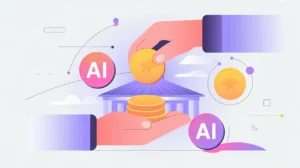Importance of Scheduling Platforms
Scheduling Platforms are digital tools that enable individuals and organizations to manage appointments, events, and resource allocation efficiently. They provide interfaces for booking, reminders, and synchronization across calendars and communication systems. Their importance today lies in reducing friction in coordination, especially in distributed and global teams where time zones, availability, and resource management can otherwise cause inefficiencies.
For social innovation and international development, scheduling platforms matter because mission-driven organizations often operate with limited staff who juggle diverse stakeholders. These tools streamline coordination across health clinics, classrooms, and humanitarian field operations, ensuring time is used productively and services are delivered reliably.
Definition and Key Features
Scheduling platforms like Calendly, Cal.com, Doodle, and Microsoft Bookings provide features such as shared availability, automated confirmations, and calendar integrations. More advanced platforms include resource scheduling, team coordination, and integration with CRMs, video conferencing, or payment gateways.
They are not the same as project management platforms, which focus on task tracking and broader workflows. Nor are they equivalent to personal calendars, which serve individuals but lack collaborative booking features. Scheduling platforms bridge these gaps by simplifying coordination across people and systems.
How this Works in Practice
In practice, scheduling platforms automate the process of finding meeting times, reducing back-and-forth communication. They allow organizations to set rules around availability, buffer times, and meeting types. Advanced systems can allocate resources such as classrooms, vehicles, or medical staff based on demand. Integration with communication tools like Zoom or Teams ensures seamless workflows from booking to delivery.
Challenges include privacy concerns around sharing calendars, over-reliance on third-party services, and accessibility for communities with limited digital literacy or internet connectivity. Mission-driven organizations must ensure inclusivity by combining digital scheduling with offline options where needed.
Implications for Social Innovators
Scheduling platforms are highly relevant for mission-driven organizations. Health systems use them to manage patient appointments, optimize staff shifts, and reduce waiting times. Education programs rely on them to coordinate teacher-student meetings, workshops, or tutoring sessions. Humanitarian agencies deploy scheduling tools to organize logistics, field visits, and donor engagements under tight timelines. Civil society groups benefit from scheduling platforms when organizing advocacy events, campaigns, or coalition meetings.
By reducing administrative overhead and improving coordination, scheduling platforms free organizations to focus more energy on achieving their missions and serving communities.







